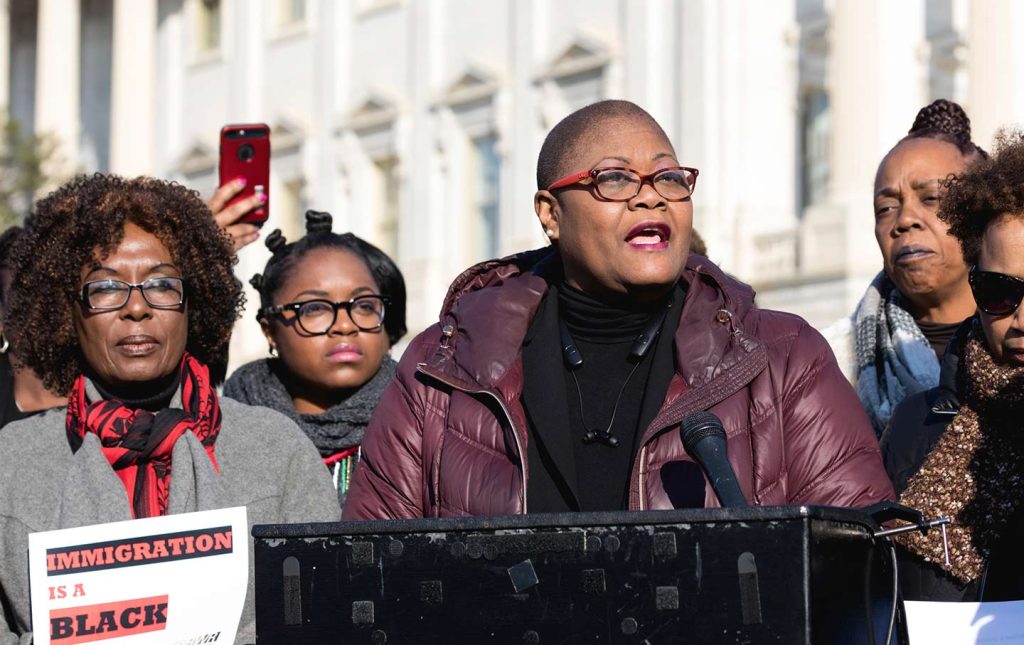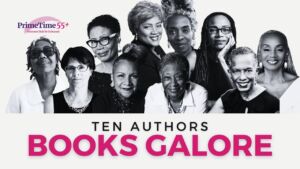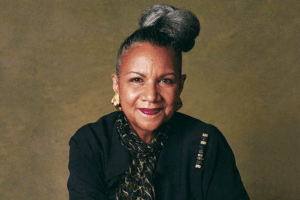Politics are local but impact is national
By Gwen McKinney

A student organizer in the “second wave” of southern voting rights campaigns, It was the mid-1980s and Atlanta was teeming with politics and possibilities. “Everything was melded with the advocacy of social and racial justice – voting rights, labor rights, economic justice – they were interwoven into our work,” remembers Campbell, then a student activist in the “second wave” of southern voting rights campaigns. .
From on-the-ground labor organizing with Mississippi catfish workers, to Selma Bloody Sunday voting rights marches and trainings, to mobilizing Atlanta University Center Get-Out-The-Vote elections, Campbell’s plate was overflowing.
When offered a job with the DC-based National Coalition on Black Civic Participation (NCBCP) in 1995, it seemed an easy choice. “I decided to come to DC for about 18 months,” reflected Campbell, a native of Mims, Florida.
Fast forward nearly 30 years and the NCBCP President & CEO acknowledges that the time and demands have been a perpetual preoccupation, no less consuming than the campaigns of her youth.
When Black civic and political leaders meet with the president, it’s usually Campbell who is the ringleader and convener. When the push was mounted to ensure a Black woman was seated on the Supreme Court, Campbell mobilized a far-flung array of Black women civic, legal and service organizations to underscore their voice and presence.
This October, Campbell joined with Florida civic activists on a whistle-stop tour taking aim at policies that purge voter rolls, ban books and lob a wholesale attack on Black history. The tour, dubbed “Power of the Ballot – We Will Not Be Erased” is aimed at reaching Black voters where they live – on college campuses, churches, wing joints and town halls. A rolling chartered bus, loaded with activists and leaders of Florida’s National Coalition on Black Civic Participation, traveled to Jacksonville,Daytona, Brevard County, South Florida and Tallahassee.
“Politics are local, but what’s happening in Florida cities and towns is an attack on our democracy as a country,” Campbell says.
Florida tour organizer Salandra Benton, convener of the Florida Coalition on Black Civic Participation and the Florida Black Women’s Roundtable (BWR), says the tour is a call to arms and action.
“In Florida, our people are under siege,” Benton insists. “This tour is aimed at people who are feeling defeated to give them hope, to be empowered, wake up and vote for solutions to improve their lives. We can’t afford to be erased or give our power away by not voting.”
The National Coalition comprises over 70 national membership organizations, 11 state-based affiliates and leading Black women civic and political leaders. Their decades-long push has also helped to explode the electoral power of Black women. Beginning in early 2000 and leading up to the election of President Barack Obama in 2008, exit polls and election outcomes revealed that over-performing Black women voters were tipping the balance in electoral victories across the country.
The secret sauce, confides Campbell, is in the diversity and unity of our people weaved throughout the fabric of Black civic life – sororities, faith organizations, service clubs and advocacy organizations.
“Prominent veterans and those just starting out, seasoned organizers and emerging leaders all have something to give.” Campbell draws on personal testimony, acknowledging that she was mentored at the knees of legendary leader Dorothy I. Height.
The chair and president of the National Council of Negro Women, Dr. Height was the quintessential “race woman” whose influence and impact touched virtually every major civil rights campaign of the 20th Century – anti-lynching, employment, women’s rights, voting rights, education and Black women’s empowerment.
Campbell says Dr. Height dispensed many lessons, but intergenerational inclusion – a vital hallmark of NCBCP– was one of the most important. “She knew youth are our future, but never missed an opportunity to salute the Sheroes on whose shoulders she stood.”
“She treated everyone with the same respect and dignity,” Campbell continues. “It didn’t matter if you were the President or First Lady of the United States or the sister from the neighborhood.”
###
Gwen McKinney is creator and campaign director of Unerased| Black Women Speak




